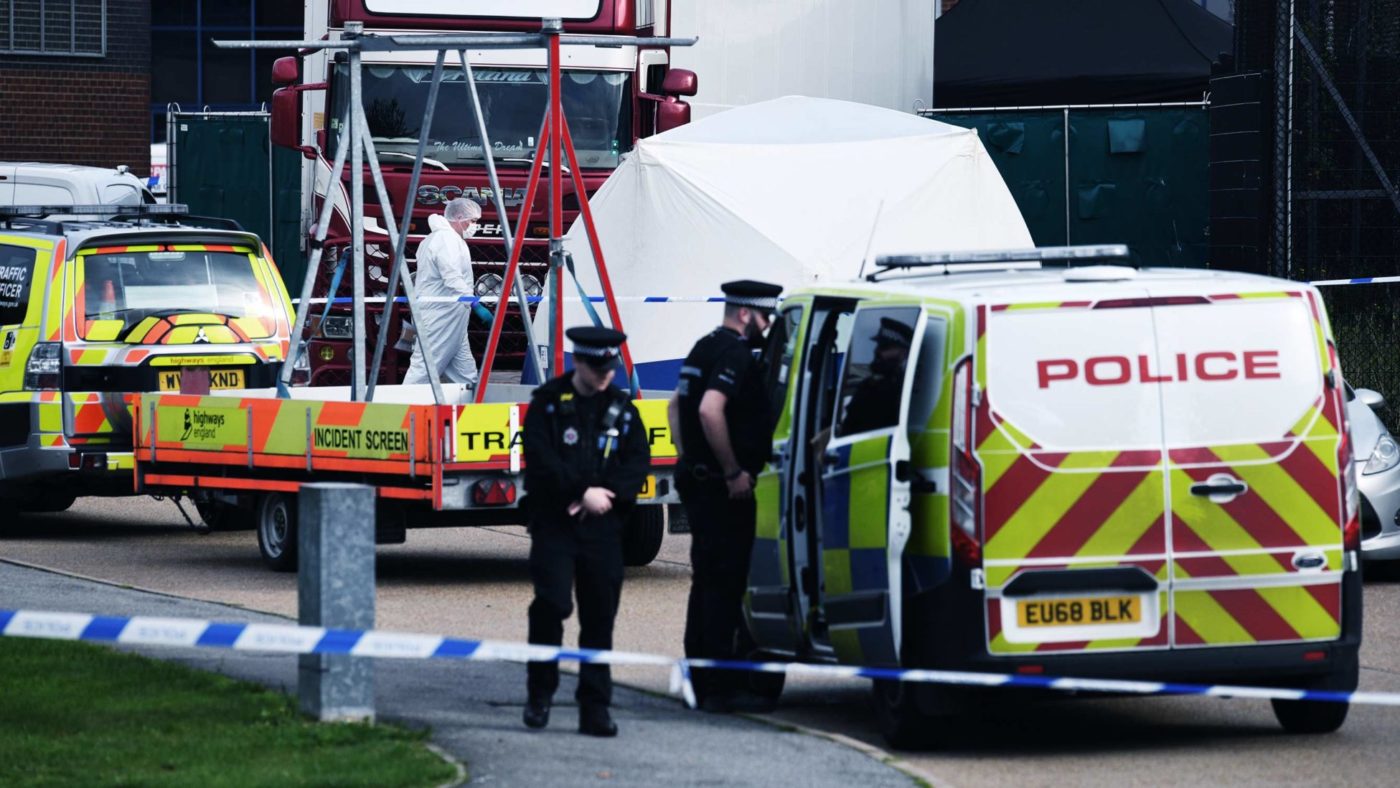No tragedy is so great that someone, somewhere will not seek to make political capital from it.
So it was perhaps unsurprising that Chinese nationalist tabloid the Global Times responded to the deaths of 39 people this week in Essex with the headline ‘The UK must bear responsibility’. The paper’s editor, Hu Xijin, went one further, posing ‘a simple question…why do these disasters always happen in the UK and not Europe or America?’.
Those men and women, believed by police to have been Chinese nationals, suffered a fate we might describe as ‘unimaginable’ were it not so pitifully precise, frozen to death in the back of a lorry that had transported them from a Belgian port to the Thames Estuary.
That has quite rightly prompted soul-searching in this country, and a candle-lit vigil for the dead. Faced with such a grotesque loss of life, the need to urgently re-examine border checks and pursue people traffickers has never seemed greater.
Nevertheless, though the British authorities should certainly ask questions about what could have prevented this, the idea that the UK is the villain of the piece is misplaced.
Of course, responsibility lies first and foremost with the criminals who organised the transport of these individuals, more details of which we will probably learn in the coming days and weeks. These deaths are a reminder of a clandestine, depraved world that exists beyond most of our experience, only to surface occasional with a brutal reminder of its existence.
Yet without desperation, the people traffickers would not have a market in the first place. We might flip Mr Hu’s ‘simple question’ on its head and ask not ‘Why Britain?’, but why some Chinese people are apparently willing to risk their lives on a perilous journey to Europe.
When it comes to refugees from countries such as Syria or Libya, the answer seems obvious – they are fleeing the threat of lethal force. China, on the other hand, projects a strutting self-confidence, its grand ambitions epitomised by the swaggering One Belt, One Road infrastructure project.
That public image belies the China few of us know about, a world outside the big cities, where life remains crushingly hard. For Westerners fed on a diet of Shenzhen tech start-ups and Shanghai spires, it seems staggering to think that some 480 million Chinese nationals – close to the entire EU population – live on under $2 a day.
And though it’s right to note the progress the country has made by liberalising its economy, that should not distract from how repressive the structures of the Chinese state remain. The economy is blighted by endemic corruption and graft which locks swathes of its huge population out of any hope of prosperity. As Leo Austin has written on these pages, the workings of the state are often “designed to keep people in their place”, with a series of bureaucratic hurdles standing in the way of climbing the economic ladder.
It is right that we in the UK reflect on the awful events in Essex this week, and do whatever we can to prevent such a thing ever happening again. But let us do so in a spirit of self-examination, not self-flagellation.
CapX depends on the generosity of its readers. If you value what we do, please consider making a donation.


